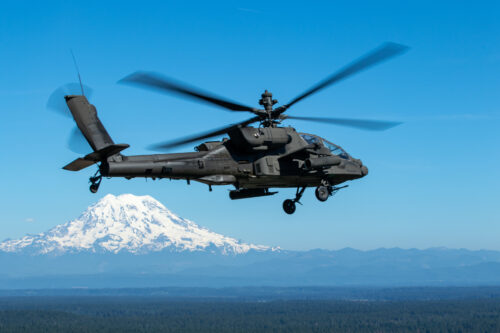Australia’s recent decision to acquire 29 AH-64E Apache attack helicopters has reignited the debate on the relevance of these aerial warriors in the modern battlespace, says Andrew McLaughlin in this piece for PS News.

The Apache boasts undeniable advantages – proven lethality with a potent arsenal and maneuverability for precise engagement, particularly valuable in close-air support roles. Its scouting prowess, enabled by agility and hovering capabilities, would be valuable in Australia’s vast and diverse terrain. Additionally, the Apache’s advanced datalinks position it for a potential future in Manned-Unmanned Teaming (MUM-T) operations. This concept could leverage the strengths of both platforms, combining the firepower and experience of Apache pilots with the lower cost and expendability of unmanned aerial systems (UAS).
However, the war in Ukraine has cast a long shadow, highlighting the vulnerability of attack helicopters to advanced air defenses. While Australia’s potential adversaries might not possess the same level of air defenses, the risk remains. This vulnerability could significantly limit the Apache’s operational freedom in a contested environment. Another significant concern is the high cost of acquiring and maintaining these complex machines. The $5 billion Apache acquisition represents a major investment, and these helicopters require extensive training for pilots and dedicated maintenance crews, further driving up operational expenses.
The vulnerability of attack helicopters due to their manned crew is a stark contrast to the expendability of UAS. Losing an Apache represents a significant loss of life and a costly asset.
Australia’s Apache acquisition reflects a critical question: can attack helicopters adapt and survive in the face of evolving threats? MUM-T offers a potential path forward, but questions remain about its effectiveness and the limitations of a crewed platform. The rapid advancement of UAS technology and the high cost of Apaches make the future of manned aerial attack platforms uncertain.